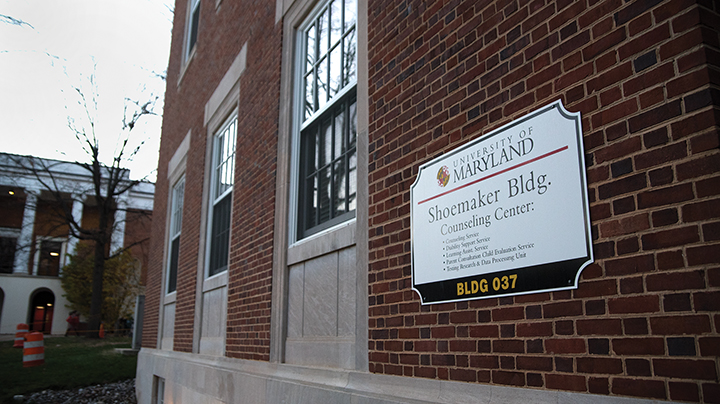In addition to stress University of Maryland students may experience with midterm exams and deadlines, it’s likely they’ll also seek help at the Counseling Center because of relevant issues during this presidential election season, said David Peterson, associate director of the Counseling Center.
“Because of this particular election year — and the anxiety and concerns and heated rhetoric that we hear about, and read about and watch constantly — it certainly would not surprise me that [the election is] a contributor to the anxiety and stress that we see for students here,” Peterson said.
Fifty-two percent of adult Americans reported that the 2016 election is causing them very significant or somewhat significant stress, according to an American Psychological Association survey from Oct. 13.
Democrats and Republicans are just as likely to experience stress, according to the online survey, which was conducted by The Harris Poll on behalf of the APA.
Issues of immigration, jobs and social issues related to same-sex marriage and women’s choice are important to college-aged voters, Peterson said. Discussions that surround sexual assault rhetoric and minority populations are especially relevant, he added.
“These are the ones that generate a lot of feeling and a lot of positions,” Peterson said. “So I would think those in particular, during this campaign year, would be on the minds of students.”
Conversations surrounding sexual assault came to light in October when a video of Republican presidential nominee Donald Trump was released of him making lewd comments about women.
“Grab them by the pussy,” Trump said, and alluded that women let him do whatever he wanted to them. Since then, about 12 women have accused the candidate of sexual assault.
Trump’s stance on immigration, which includes a plan to build a wall across the Mexico–U.S. border and deport undocumented immigrants, contradicts Democratic presidential candidate Hillary Clinton’s plans for immigration reform.
But for junior journalism major Karla Casique, both of the candidates’ stances on immigration are concerning.
“My overall feeling has been panic and just worry,” she said.
Casique, who immigrated to the U.S. from Venezuela in 2003, is undocumented and has status under President Obama’s Deferred Action for Childhood Arrivals executive order. She must renew her status, which allows her to receive a work permit and exempts her from deportation, every two years.
“Immigration reform wasn’t really talked about until the last debate,” she said. “And I think because Trump has such extremist views on that, Clinton has been given a lot of easy pass[es].” She didn’t think Clinton has been explicit about her immigration plans, she added.
Casique, who has sought help at the Counseling Center in the past, said the election season heightens her level of stress. It’s stressful to figure out which candidate has her best interests in mind each election season, she added. But she still isn’t able to cast a ballot in the election.
“It’s a really numbing feeling,” she said. “I can’t vote, so I have all of these opinions and all of these hopes, and I can’t actively do anything about it.”
It’s important for people to take a break from the stress the election causes them, such as setting limits for how much a person accesses the news, Peterson said.
“[The information is] so available that it’s easy to just get absorbed by it,” Peterson said. “Taking a break is important, and so go for a walk, or go to a movie or meditate.”
The Counseling Center offers eight free individual counseling sessions per 12-month period, according to its website, and these request increase each year, but Peterson said this may be partly due to the fact there is less of a stigma associated with mental illnesses. In addition to these services, the university’s office of Multicultural Involvement and Community Advocacy will also be offering a safe space for students stressed about election results, according to the group’s Facebook Event.
“Seeking help for mental health, you know, is very, very hard. And … there are some people who don’t even seek mental health help [at] any time in their lives,” Casique said. “Especially for undocumented or documented youth, it’s something that they should consider.”



